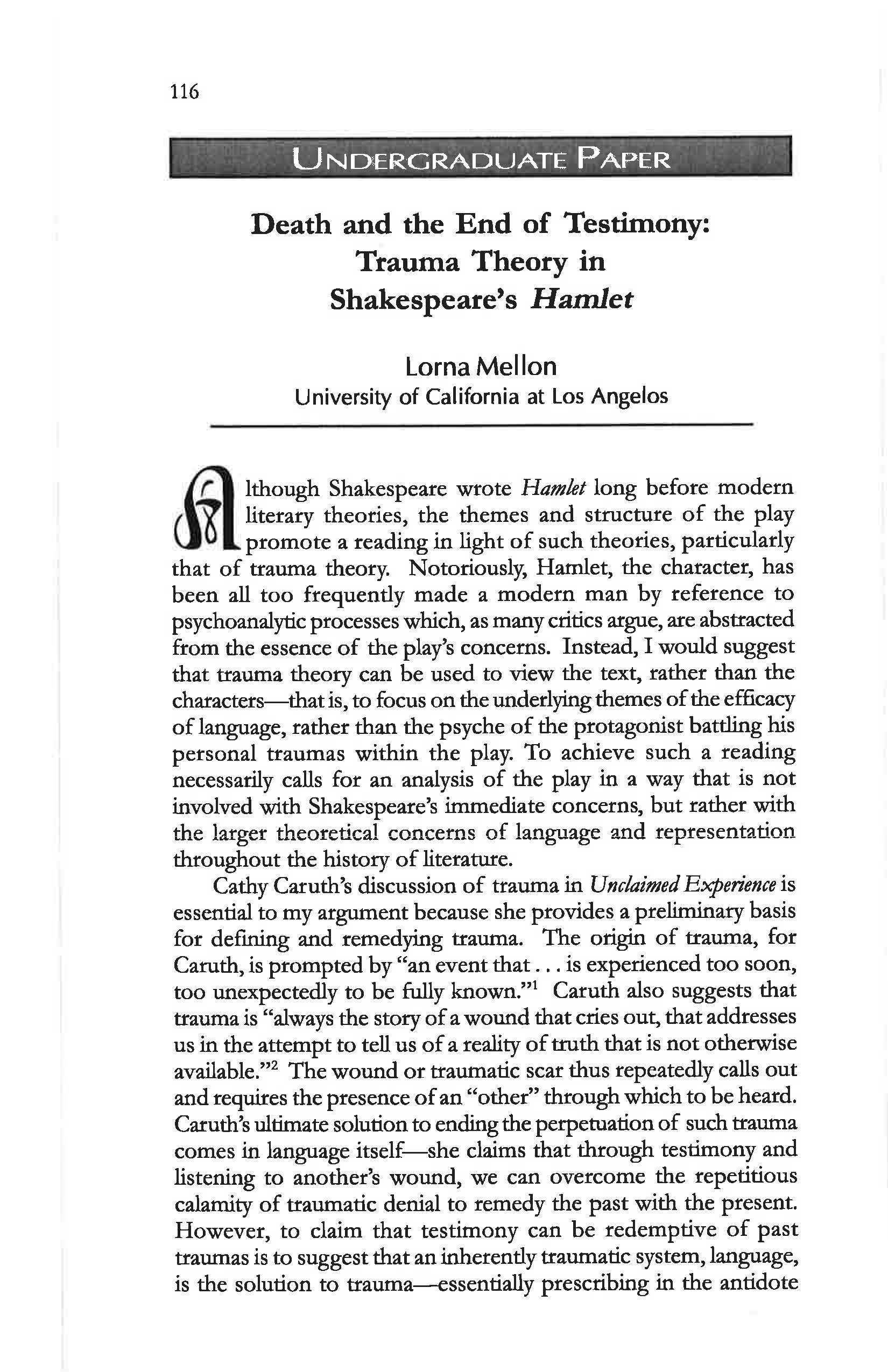Death and the End of Testimony: Trauma Theory in Shakespeare's Hamlet
Main Article Content
Abstract
Although Shakespeare wrote Hamlet long before modern literary theories, the themes and structure of the play promote a reading in light of such theories, particularly that of trauma theory. Notoriously, Hamlet, the character, has been all too frequently made a modern man by reference to psychoanalytic processes which, as many critics argue, are abstracted from the essence of the play’s concerns. Instead, I would suggest that trauma theory can be used to view the text, rather than the characters—that is, to focus on the underlying themes of the efficacy of language, rather than the psyche of the protagonist battling his personal traumas within the play. To achieve such a reading necessarily calls for an analysis of the play in a way that is not involved with Shakespeare’s immediate concerns, but rather with the larger theoretical concerns of language and representation throughout the history of literature.
